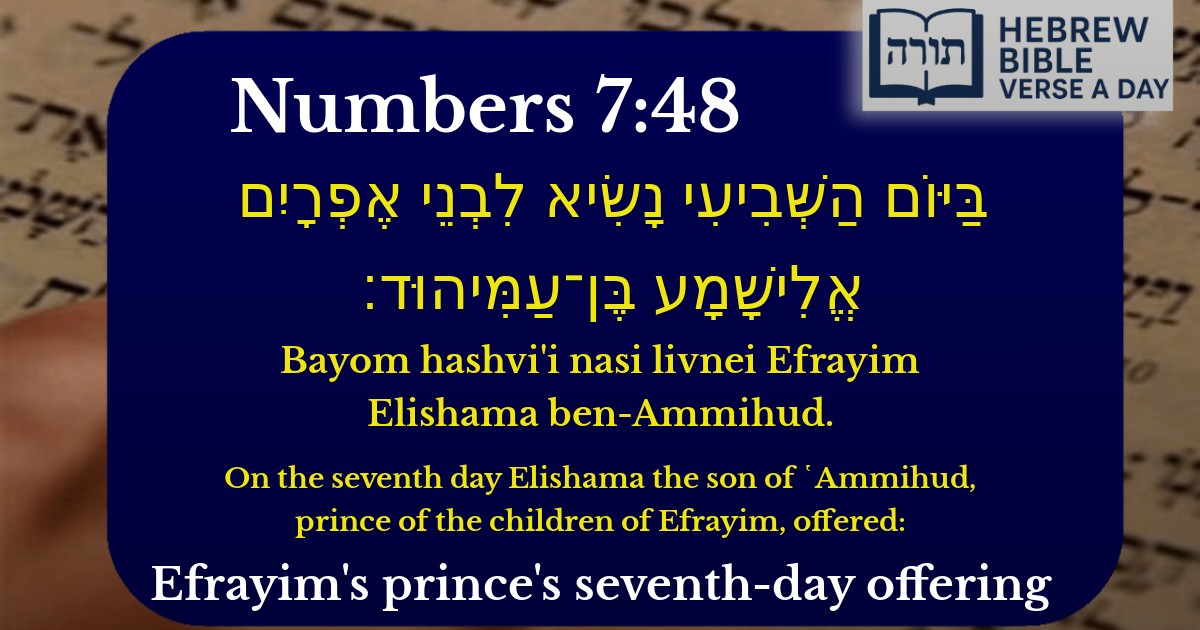Join Our Newsletter To Be Informed When New Videos Are Posted
Join the thousands of fellow Studends who rely on our videos to learn how to read the bible in Hebrew for free!
Hebrew Text
בַּיּוֹם הַשְּׁבִיעִי נָשִׂיא לִבְנֵי אֶפְרָיִם אֱלִישָׁמָע בֶּן־עַמִּיהוּד׃
English Translation
On the seventh day Elishama the son of ῾Ammihud, prince of the children of Efrayim, offered:
Transliteration
Bayom hashvi'i nasi livnei Efrayim Elishama ben-Ammihud.
Hebrew Leining Text
בַּיּוֹם֙ הַשְּׁבִיעִ֔י נָשִׂ֖יא לִבְנֵ֣י אֶפְרָ֑יִם אֱלִֽישָׁמָ֖ע בֶּן־עַמִּיהֽוּד׃
בַּיּוֹם֙ הַשְּׁבִיעִ֔י נָשִׂ֖יא לִבְנֵ֣י אֶפְרָ֑יִם אֱלִֽישָׁמָ֖ע בֶּן־עַמִּיהֽוּד׃
🎵 Listen to leining
Parasha Commentary
📚 Talmud Citations
This verse is not quoted in the Talmud.


Context in the Torah
This verse (Bamidbar 7:48) appears in the section detailing the offerings brought by the tribal leaders (nesi'im) during the dedication of the Mishkan. Each prince of the twelve tribes brought identical offerings over twelve consecutive days, with Elishama ben Ammihud representing the tribe of Ephraim on the seventh day.
Elishama ben Ammihud
Rashi (Bamidbar 7:48) notes that Elishama was the grandfather of Yehoshua bin Nun (Joshua), connecting this leader to future greatness. The Midrash (Bamidbar Rabbah 14:4) elaborates that Ephraim's offering being on the seventh day hints at Yehoshua's role in conquering Eretz Yisrael, as the number seven symbolizes completion (like the seven days of creation and seven years of conquest).
Significance of the Seventh Day
Symbolism of the Offerings
The Kli Yakar (Bamidbar 7:48) observes that all tribes brought identical offerings to demonstrate unity, despite their individual characteristics. Ephraim's offering on the seventh day particularly emphasizes this unity reaching its perfected state.
Leadership Lessons
Rabbi Samson Raphael Hirsch notes that Elishama's willingness to wait until the seventh day—without seeking earlier prominence—teaches the value of patience and humility in leadership, qualities embodied by his descendant Yehoshua.